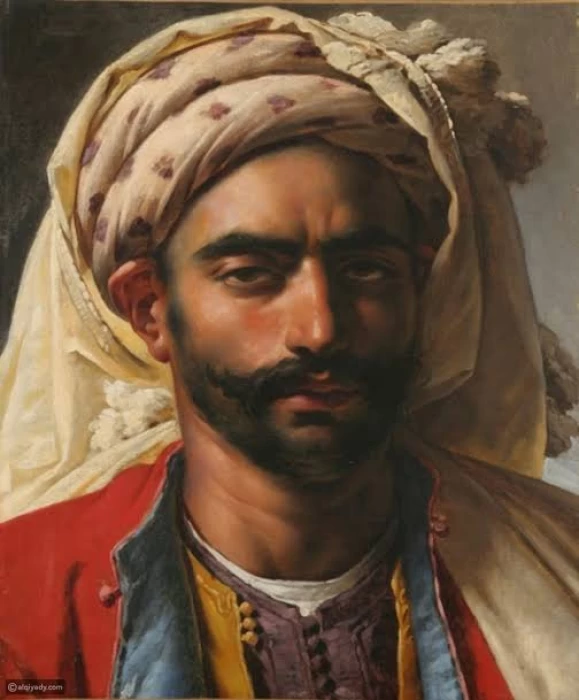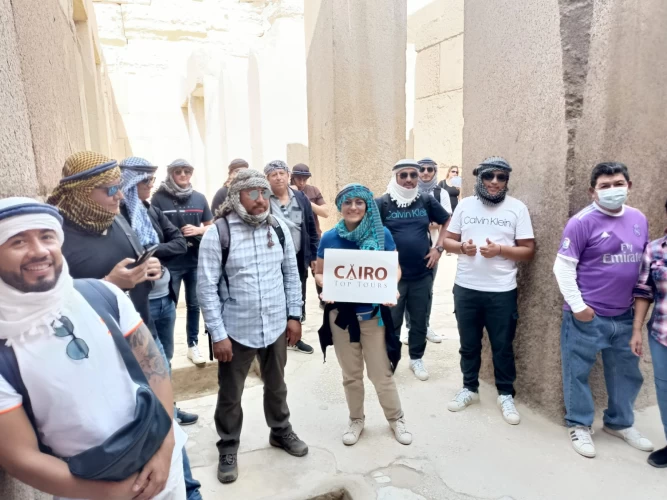
History of Al Hakim bi Amr Allah
The ruler in the order of Allah is al-Mansur Ibn al-Aziz in the name of Allah, Nizar Ibn Al-Mu'izz for the religion of Allah, Ma'ad Ibn al-Mansur, Ismail ibn al-Qaim in the order of Allah, Muhammad ibn Ubayd Allah al-Mahdi, and his title ruler in the order of Allah and his surname Abu Ali, (985-1021) he ruler, by the command of Allah, is an important figure in several Ismaili Shiite bands, such as the 15 million Nizaris of the world, as well as two million Druze from the Levant, whose well-known founder Muhammad ibn Ismail al-Druze declared himself the embodiment of God in 1018.
His eyes were wide, and his voice was a fearful bass. The period of his reign was marked by tension, as he was at odds with the Abbasids, who were trying to limit the influence of the Ismailis, and one of the results of this tension in relations was that the Abbasid Caliphate issued a famous decree in 1011 stating that the ruler, by the command of Allah, is not a descendant of Ali ibn Abi Talib. In addition to his dispute with the Abbasids, the ruler Amr Allah was also engaged in another conflict with the Qarmatians. The history of the ruler by the command of God can be controversial, since there are diverse points of view about his life and legacy.
Biography
At the beginning of the ruler's reign, some aspirants tried to take advantage of his young age to achieve their ambitions in power. The first of them was Sheikh Kutama (Abu Muhammad Bin Ammar), who forced the ruler to take over the affairs of the state, so he became the administrator. He was nicknamed (Secretary of State). At the same time, he was competing with another man, Abu al-Futuh Burjwan, who was present during the days of the Dear God and reached the rank of (Butler). Burjwan succeeded in provoking the Musharqa sects against the sects of the Moroccans, who ruled tyrannically with their master (Ibn Ammar), and many sites between them ended in victory (Burjwan) and the escape (Ibn Ammar).
Burjawan deposed the ruler and took the Pledge of allegiance to him again. Then he took over the affairs of the state and formed for himself a special sect of soldiers and Mamluks. Then he was kind to Ibn Ammar and gave him his fiefs that had been his before, and he stipulated obedience to him, and thus the Moroccans were attracted to him as well. However, Burjwan soon succumbed to tyranny and tyranny, and he considered himself the true caliph.
This is in addition to his preoccupation with fun and pleasures, which led to his departure from the affairs of the state, which were disrupted and corrupted as a result. In the midst of this, Burjwan forgot that the ruler had passed the age of youth and entered the stage of youth, and became aware of Burjwan's tyranny and overcame it. The governor orchestrated a plot to kill Burjawan, and this was done, and the governor issued a statement justifying the reasons for Burjawan's murder. He later got rid of burjuan men in the army and the palace. He also prepared an ambush for Sheikh Kutama Ibn Ammar by instigating some of the Musharaka who killed him, and then the ruler destroyed his aides from the elders of Kutama.
Thus, the ruler was able to regain his authority, get rid of all competitors, and control all the reins of government, and by then he had exceeded 15 years. The ruler, when he took over, showed austerity and asceticism, unlike his fathers. He brought out of his palace a group of his concubines and arrested all his other kingdoms, females and males. He also gradually moved from the gilded clothes on the custom of his fathers to coarse woolen clothes, and he also mitigated the extravagance that was happening in the celebrations of various occasions, and also ordered that no one pray on him in his writings and limited to this formula: (God's peace, greetings, and blessings be upon the Prince of believers).
The ruler was extravagant in killing to a great extent to save his state and fix its affairs, and he was severe in dealing with his statesmen and severely held them accountable if they made mistakes. He also relied on the consideration of grievances to cleanse his state of corruption. He continued to ride day and night on his donkey and roamed with it in the markets and villages to hear the grievances of the people. The ruler inherited from his dear father, by Allah, his keenness to distribute money to the poor and needy. Historians testify that his hand did not extend to taking money at all, so that one of them - a Christian - said (to Omri that the people of his kingdom were still safe for their money in his days, insecure about themselves), and he also made sure to reduce taxes on his subjects, especially what is known as the excise tax (?reference).
It was narrated from the ruler at the beginning of his reign that he was a generous giver, and after he took over the succession, he gave the most secretive giving. Al-Maqrizi also narrates the form of celebrations in his reign for all sects. During his reign, Christians celebrated the Epiphany largely and majestically, and he also gave the Turks horses and weapons on the feast of Nowruz.
The most important decrees issued by him
Read a record of foods that prohibit eating Mallow, The Onion, called arugula, and mutukliya attributed to the trusted one. It is forbidden to knead bread with a man, it is forbidden to eat millet, and it is forbidden to slaughter cows, for which there is no consequence except on the days of sacrifice and other days, and only what is not fit for plowing is slaughtered.
Another record was recited that it is permissible to pray Zuhr at the first of the seventh hour (zuwalia) and it is permissible to pray ASR at the first of the ninth hour (zuwalia). Repairing points and scales and forbidding stinginess in them, and preventing the sale of pemphigus, and doing it as a result of what affects me from hating drinking pemphigus. Bells were rung on the streets, and no one was to enter the bathroom except with an apron, and no woman was to expose her face on a road, or behind a funeral, or make up. None of the fish is sold without a shell, and no one from the fishermen catches it. I followed the pigeons and arrested a group who were found without an apron, beaten, and mutilated. It is also narrated that he drew a group of juveniles to jump from a high position in the palace and drew an onion for each of them, so a group came and jumped, and about thirty of them died to fall out of the water on a rock there, and he gave his money to those who jumped.
He ordered to sweep alleys, streets, floor floors everywhere. He opened the House of Wisdom in Cairo and carried books to it, and jurists, readers, grammarians and other masters of science were installed in it, servants were furnished and set up in it to serve it. in the year 396 ah, the ruler, by the command of Allah, ordered the people in Egypt and the Haram if the ruler mentioned, to rise and prostrate in the market and in the meeting places. In the year 398 Hijri, in Al-Muharram, the shortage of Nile water began with eighteen berries, so the matter intensified, the bread was sold wet, and a group of bakers were beaten.
Some believe that these attempts are often just a reward for the ruler to tarnish his image, as these attempts were not mentioned by any of the Egyptian historians who wrote the history of the Fatimids, whether they were supporters or opponents, including Al-maqrizi, Ibn taghri Bardi, and this was mentioned for the first time in the book of the historian Hafiz.















